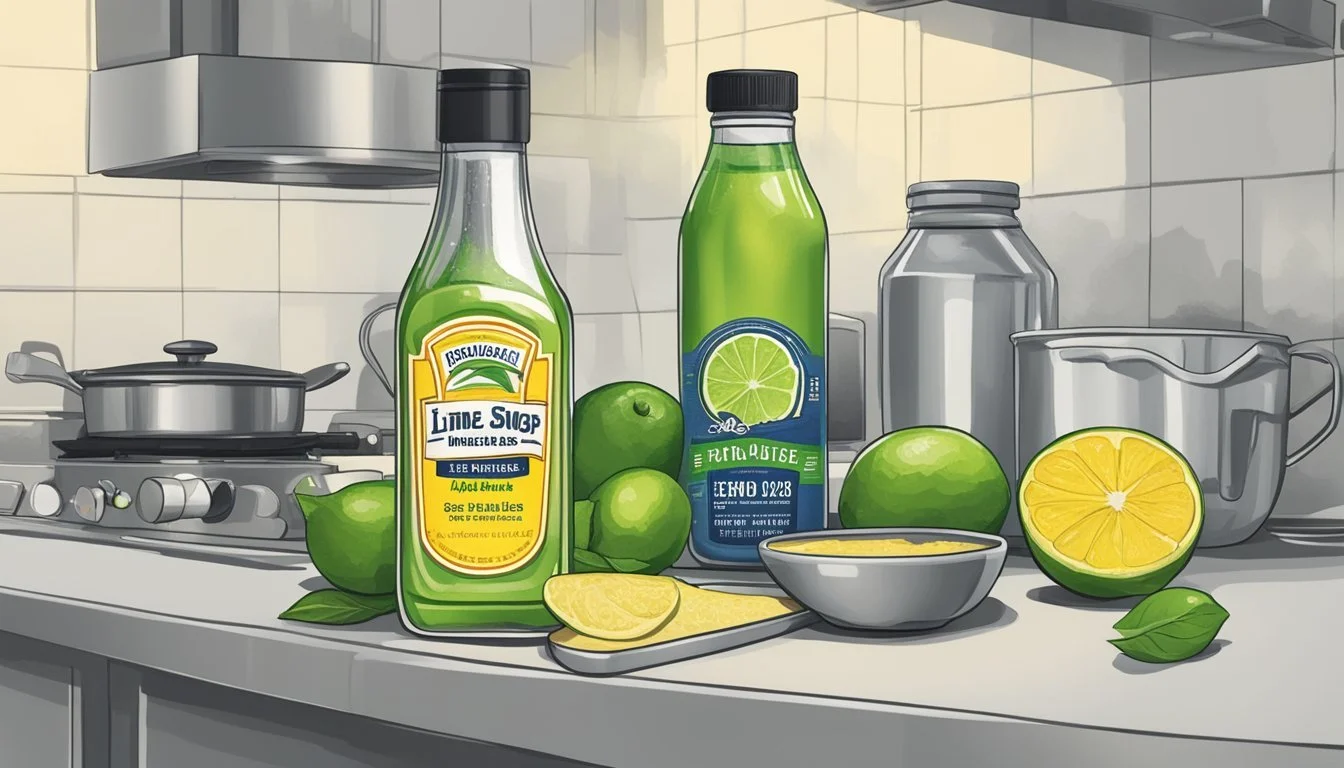Is it Safe to Use Expired Lime Juice?
Understanding the Risks
Lime juice, a common ingredient in culinary and beverage recipes, carries an expiration date to guarantee its quality and safety. Over time, the properties of lime juice may change, impacting both the flavor and nutritional value. It is often safe to use lime juice shortly after the best-before date, depending on its storage conditions, but as it continues to age, several indicators suggest it may no longer be safe for consumption.
When lime juice spoils, it undergoes a noticeable transformation. Observable signs of deterioration include cloudiness, discoloration, or the emergence of an off or sour smell. Expired lime juice not only affects the taste of the drink or dish it's used in, but it also poses the risk of food poisoning. To prevent negative health outcomes, it's crucial to recognize these signs and understand the implications of using lime juice past its prime.
Proper storage is key to maximizing the shelf life of lime juice. Bottled lime juice, when unsealed, may remain consumable for a period extending past the expiration date; however, once opened, the juice should ideally be used within a few months. Freshly squeezed lime juice has a significantly shorter shelf life, typically ranging from a few days to a week when refrigerated. It's clear that understanding the shelf life of both freshly squeezed and bottled lime juice can help maintain both the taste integrity of recipes and ensure it's consumed when it's safest.
Understanding Lime Juice and Expiration
Understanding the relationship between lime juice and expiration is vital for maintaining food safety and enjoying the best quality of flavor. The following subsections delve into the specifics to ensure you have the necessary knowledge.
Expiration Date and Food Safety
Lime juice, like all perishable foods, comes with an expiration date which serves as a guideline for expected freshness. The risk of food poisoning increases once lime juice has passed this date due to the potential for bacteria growth.
Differences Between Fresh and Bottled Lime Juice
Freshly squeezed lime juice typically lacks preservatives and thus has a shorter shelf life compared to bottled lime juice, which often contains preservatives that extend its freshness. The latter is also commonly pasteurized to kill bacteria.
Shelf Life Determinants
Factors influencing the shelf life of lime juice include whether it's pasteurized, the presence of preservatives, and storage conditions. Refrigeration and proper sealing can significantly prolong shelf life.
Signs of Spoilage in Lime Juice
Spoilage is evidenced through changes in smell, appearance, and taste. A sour odor, cloudy appearance, or presence of mold indicates bacterial or organic growth and means the juice should not be consumed.
Health Implications of Consuming Expired Lime Juice
Consuming expired lime juice can weaken the immune system and lead to symptoms such as vomiting, diarrhea, and stomach cramps due to foodborne bacteria.
Proper Storage Techniques
To ensure longevity, store lime juice in an airtight container in the refrigerator. Bottled lime juice can be kept in a pantry until opened, after which refrigeration is necessary to maintain safety.
Extending Lime Juice Shelf Life
The shelf life of both freshly squeezed and bottled lime juice can be extended by freezing. Freeze lime juice in an airtight container or ice cube trays to retain its quality and smell.
Substituting Expired Lime Juice in Recipes
In recipes, sour taste is the main contribution of lime juice. If you suspect spoilage, substitute with other citrus flavors like lemon juice, ensuring no compromise in food safety or recipe flavor profile.
FAQs
How long does bottled lime juice last after opening? — Approximately 4 to 6 months when refrigerated properly. Can you freeze lime juice to extend its shelf life? — Yes, freezing lime juice in an airtight container can maintain its quality for up to 4 months.
Conclusion
Making informed decisions about the use of lime juice post-expiration date depends on understanding the significance of expiry, recognizing spoilage, and employing proper storage methods.


